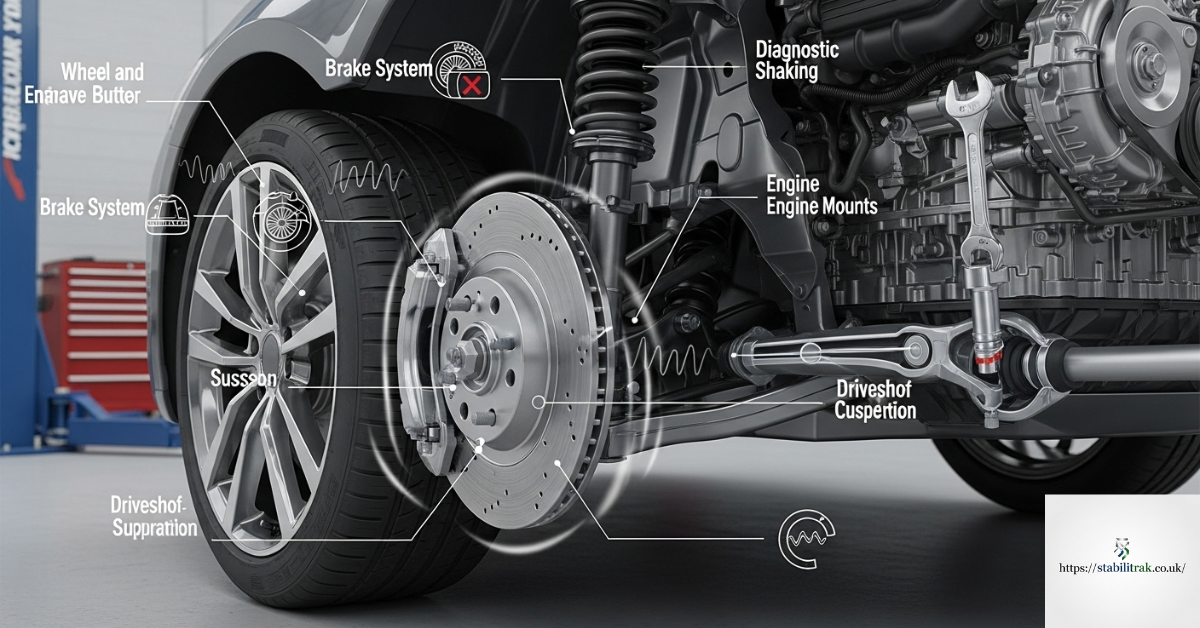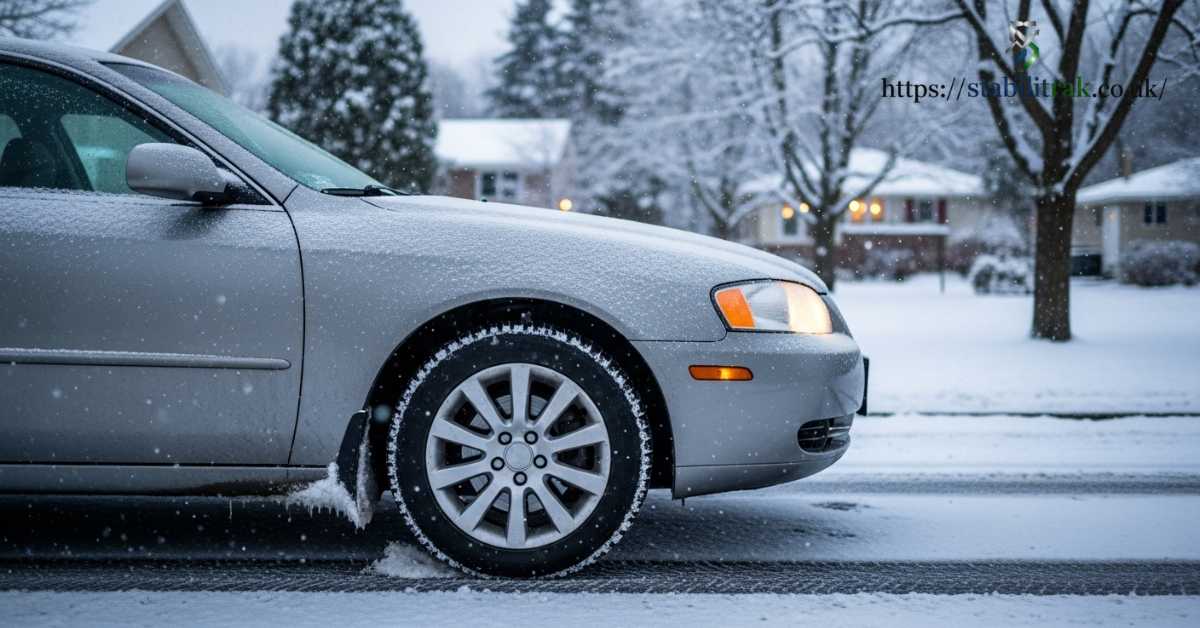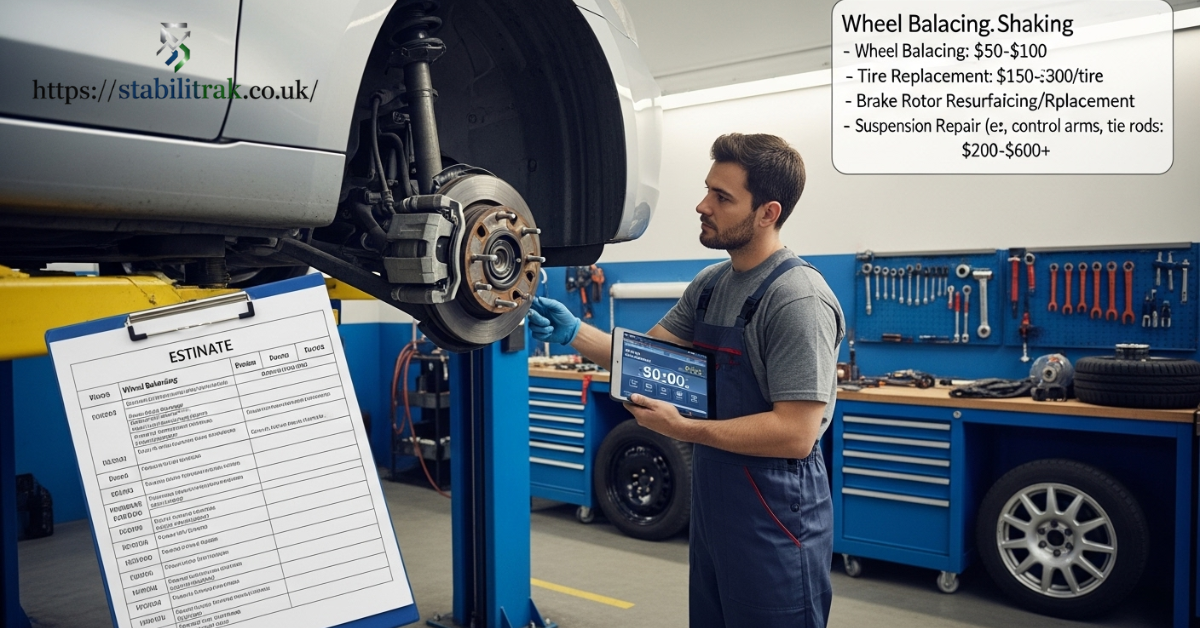Have you ever been driving and suddenly noticed your car shaking for no clear reason? It’s one of those moments that instantly makes you nervous, especially if the steering wheel starts to vibrate or the whole vehicle feels unsteady. You start wondering if it’s something small or a sign of a bigger problem waiting to happen. Either way, it’s not a feeling anyone wants while on the road.
In this post, we’ll break down the most common reasons behind car shaking and what you can do to fix it. You’ll learn how to identify the signs, understand the potential causes, and determine which ones require urgent attention. Whether it’s something as simple as worn tyres or a more serious mechanical issue, this guide will help you get back to a smooth, safe ride.
Top Reasons Your Car May Be Shaking

1. Engine Problems
Your engine is a complex system, and even small issues can cause noticeable vibrations. Faulty spark plugs, clogged air filters, or malfunctioning fuel injectors can disrupt the combustion process. This can cause inconsistent engine performance and shaking, most noticeable during idling or acceleration.
If you notice a rough idle or hear unusual engine noises alongside the shaking, it’s a sign that your engine needs a check-up. In some cases, worn engine mounts can also cause vibration by failing to hold the engine securely in place.
2. Brake Problems
If your car shakes only when you press the brake pedal, warped brake rotors are a likely cause. Over time, rotors can become uneven due to heat and wear, creating that pulsing feeling through the brake pedal or steering wheel.
Brake pad issues, stuck calipers, or damaged brake hardware can also cause vibrations. Since brake-related problems can affect stopping distance, it’s important to have them fixed quickly.
3. Axle Problems
A bent axle, often caused by hitting a curb, pothole, or accident, can create a noticeable wobble as you drive. Damaged CV joints or a worn driveshaft can also send vibrations through the car.
Wheel bearings play a part here, too. If they’re worn or failing, they can cause uneven rotation and shaking at certain speeds. These issues often get worse over time, so early diagnosis is key.
4. Wheel Problems
Your wheels take a lot of abuse, and even minor damage can throw them out of balance. A bent rim, poor wheel alignment, or missing wheel weights can all create vibrations, especially at highway speeds.
Balancing and alignment services are relatively inexpensive compared to the long-term wear and tear caused by driving with misaligned wheels. Identifying the issue early helps prevent additional suspension and tire damage.
5. Tire Issues
Tires are one of the most common causes of vehicle vibration. Uneven wear, out-of-round tires, or skipped tire rotations can lead to shaking that gets worse over time.
If your tires are worn, replacing them with high-quality options and keeping up with regular rotations can solve the issue. Tire balancing is also essential to ensure even contact with the road.
Read More Article: How Much Is a Nose Job
Why Is Your Car Shaking in the Winter?

Cold weather brings unique challenges. In snowy climates, ice and slush can stick to your wheels, causing temporary imbalance and vibration. This doesn’t mean anything is wrong with your tires or suspension; it’s simply debris throwing off the wheel’s rotation.
The easiest fix? Run your car through a car wash to melt and remove the buildup. If the shaking continues after cleaning, you may have an unrelated mechanical issue that needs inspection.
Six Common Reasons for a Shaky Car
1. Old Tires
On average, tires last about three to five years, influenced by driving habits and road conditions. When they’re worn out, they can cause small but noticeable vibrations.
2. Out of Balance Tires
Skipping regular rotations can cause uneven tread wear. Unbalanced tires often result in shaking at certain speeds and can usually be fixed with a balancing service.
3. Out of Round Tires
Uneven wear patterns can cause tires to become slightly oval-shaped, leading to bouncing and shaking while driving.
4. Damaged Wheels
A cracked or bent rim can’t maintain proper contact with the road, leading to steering wheel wobble and reduced handling safety.
5. Loose Lug Nuts
Improperly tightened lug nuts can cause dangerous wheel movement. In severe cases, the wheel could detach while driving.
6. Out-of-Alignment Suspension
Potholes, curbs, and everyday wear can throw your suspension out of alignment, which may result in vibration and irregular tire wear.
What Does It Mean When Your Car Shakes?
In most cases, a vibrating car means that something in your tires, wheels, brakes, suspension, or engine isn’t functioning as it should. Some causes are minor and inexpensive to fix, while others require immediate attention to avoid safety risks.
When Does Your Car Shake?
- Idling: Likely engine or motor mount issues.
- Accelerating: Often related to tires, axles, or drivetrain components.
- Picking Up Speed: Wheel balancing or tire issues.
- Braking: Typically caused by warped rotors or worn brake parts.
Is Caa r Shaking Dangerous?
It depends on the cause. A small imbalance in the tires might not be urgent, but brake or axle problems can quickly become unsafe. If you’re unsure, it’s always better to have a mechanic check it out immediately.
What Causes Car Shaking and How Much Does It Cost to Fix?

| Cause | Average Cost (USD) | Notes |
| Tire balancing | $40 to $75 | Often solves high-speed vibration |
| Tire replacement | $400 to $800 | Improves safety and ride comfort |
| Wheel alignment | $75 to $150 | Prevents uneven tire wear |
| Brake rotor replacement | $200 to $400 per axle | Fixes braking vibrations |
| Engine mount replacement | $250 to $600 | Stops idle shaking |
| CV joint replacement | $300 to $800 | Eliminates acceleration vibration |
Conclusion
A car shaking isn’t something you should ignore. While some causes are harmless and easy to fix, others can affect your safety and lead to costly repairs if left unchecked. By paying attention to when and how your car shakes, you can often narrow down the cause before visiting a mechanic.
Whether it’s as simple as removing ice from your wheels or as complex as replacing engine mounts, acting quickly will help you get back to smooth, confident driving.
FAQs about Car Shaking
Why is my car shaking when I accelerate?
Shaking during acceleration is often caused by worn-out engine mounts, bad spark plugs, or axle issues.
Why is my car shaking when parked?
If your car shakes while parked, it may be due to engine misfires, dirty fuel injectors, or loose engine mounts.
Why is my car shaking when I turn it on?
Shaking at startup usually points to ignition problems, weak batteries, or clogged fuel/air filters.
Why is my car shaking while driving?
Common causes include unbalanced tires, suspension problems, or worn-out brake and steering parts.
Why is my car shaking at low speeds?
At low speeds, tire imbalance, warped brake rotors, or bad CV joints are the most likely culprits.
Why is my car shaking at high speeds?
Shaking at higher speeds is typically caused by unbalanced wheels, tire damage, or alignment issues.
Why is my car shaking when I brake?
Warped brake rotors, worn brake pads, or loose suspension components can cause the car to shake during braking.
Is it safe to drive when your car is shaking?
It’s not safe, since shaking can mean serious tire, brake, or engine problems that need immediate inspection.







2 thoughts on “Why Is My Car Shaking? Common Causes and How to Fix Them”